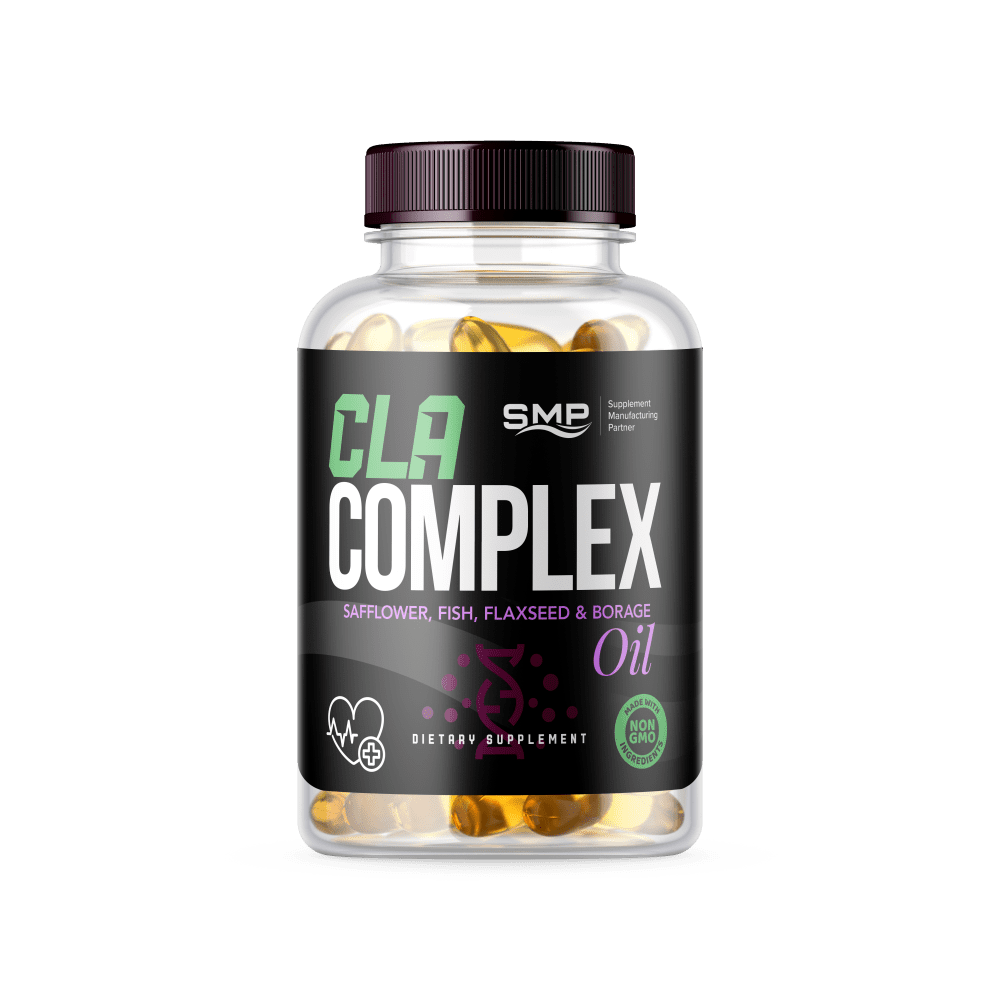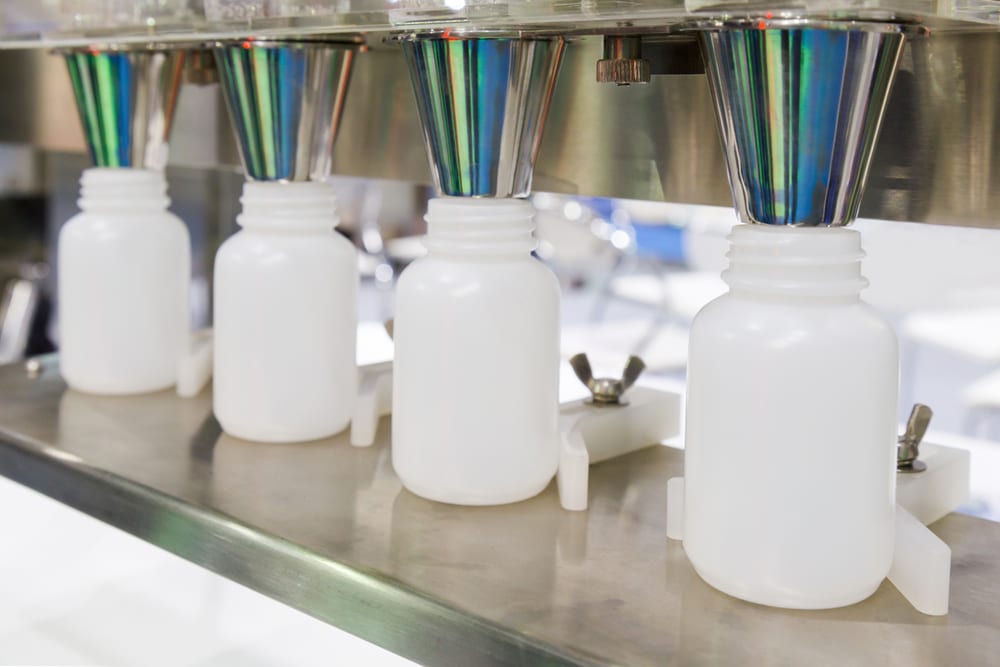
The widespread usage of dietary supplements among adults of all ages is on the rise. Driven by the heightened interest in preventative healthcare and the aging population, sales of herbal supplements, minerals, and vitamins have surged. But what is the true supplement manufacturing cost?
In this post, we’ll be talking about everything that has to do with supplements, why it’s on the rise and also the actual cost of manufacturing supplements, and so on.
Why Bring a Supplement to the Market?
Today, a large number of the adult population across the globe use health or dietary supplements to enhance their health. Health supplements are products that are packed with healthy ingredients like enzymes, amino acids, botanicals, minerals, and vitamins. These products come in the form of capsules, tablets, liquids, gel caps, powder, or soft gels(1).
The global dietary supplement industry is expected to reach USD 196.63 billion by 2025, with a CAGR of 7.8 percent during the forecasted period (2). Rising health concerns, coupled with changing diets and lifestyle, have contributed to the growing demand for these products. The market growth is further backed by a favorable outlook towards sports nutrition along with a significant rise in the number of sports centers and gymnasium.
Growing consumer awareness concerning health issues, a surge in disposable income, along with rapid urbanization, is expected to drive the growth of the market over the next seven years.
Consumer attitude is exceptionally positive towards dietary supplements with added wellness and health benefits. Medical discoveries, food innovations, changing lifestyles, increasing healthcare costs, rising geriatric population, and expectations about their high prices have accelerated the overall market growth and the product demand.
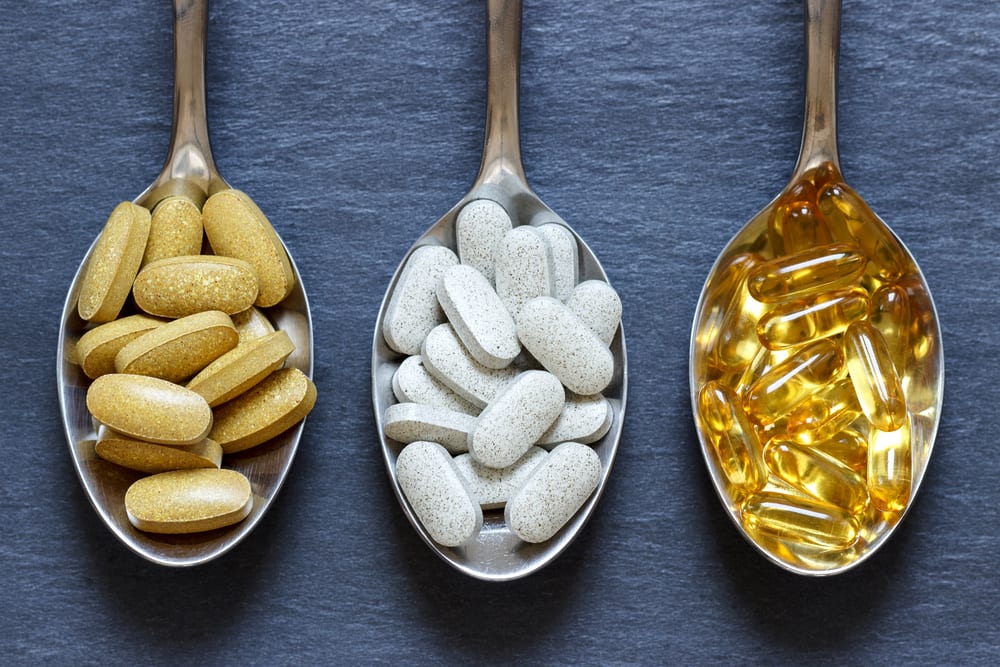
How the Supplement Market Can be Broken Down
Ingredients:
When it comes to ingredients, the market is segmented into amino acids and proteins, botanicals, minerals, vitamins, specialty carbohydrates and fibers, and omega fatty acids. Vitamins emerged as the largest segment in 2018, registering revenue of $37.64 billion. The segment is projected to grow at a CAGR of 5.6 percent in the years to come(2).
The rise in the demand for herbs for possible health benefits is projected to accelerate the botanicals segment in the forthcoming years. Furthermore, growing concerns regarding the adverse effects of traditional medicines, which include allopathic drugs, are anticipated to promote the application of botanical extracts in manufacturing dietary supplements in the next few years.
Weight & Energy Management:
Weight and energy management and other closely related types of supplements are the major contributors to the growth of the dietary supplements market. Weight & health management held the largest market share in 2018 owing to the rising trend of online weight loss programs and government initiatives for healthy lifestyles.
Sports:
In the sports sector, many athletes make use of supplements to boost their performance, including about 85 percent of elite field and track athletes(3).
Also, the growing geriatric population creates ample opportunities for the manufacturers of dietary supplements as most people belonging to this age group aren’t able to meet their RDA (Recommended Dietary Allowance) because of dietary intake deficiency, which leads to the rise in product demand.
Encapsulation
Based on product encapsulation, tablets held the largest market share in 2018 and registered a revenue of USD 40.5 billion, driven by the increasing demand for tablets because of their easy dosage patterns
The Asia Pacific is anticipated to witness the fastest growth over the forecast period. Expansion of the retail chain in countries such as China, Japan, and India has accelerated the regional consumption of dietary supplements. Major participants in this market include Glanbia, Bayer, Archer Daniels Midland, Abbott Laboratories, Arkopharma Laboratories Pharmaceutiques, and Amway, among others.
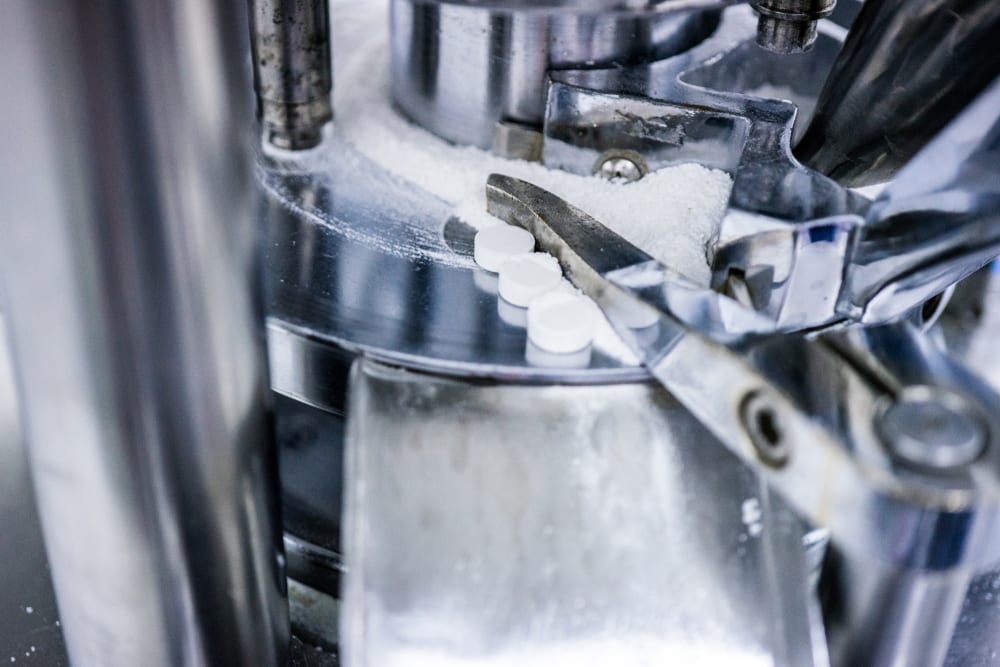
The True Cost of Manufacturing Supplements
If you’re thinking of starting your own supplements or vitamins line, the following information will help you better understand the hidden cost of manufacturing these products. It’ll also help in explaining to your customers why the supplements you offer are priced higher. Let’s start with the capital required to open a supplement business.
You can start a supplement business with about $5000; however, you’ll have it much easier if you have $10,000 to invest. Generally, with $5000, you can get:
- 150 units of supplements
- Insurance
- A website
- Professionally designed labels
Transparency isn’t Cheap
Consumerlabs.com, a third-party testing company, estimates that about a quarter of health supplements are adulterated or diluted with ingredients that are not given on the label.
So, how do you make sure that your shelves are stocked with quality products? When you select a supplement manufacturer, as a business owner, you should go for a manufacturer that’s FDA-registered, GMP-certified, and NSF-certified. Also, the manufacturer you pick should also be able to provide an analysis certificate for each batch, which proves what ingredients are in each batch. While such manufacturers aren’t that affordable to work with, they offer guaranteed products.
Among the producers who meet these criteria, there are very few who accept just 150 units of the initial order. With $10,000, however, business owners will have the required funds to make larger initial orders and meet the producer’s higher initial orders.
Also, business owners shouldn’t try to be economical with the label design costs. This is because most consumers base their choice of the supplement on packaging alone. Therefore, having a professionally crafted label is vital. Some graphic designers charge around $300-$500 to create professional logos.
While you can save input costs by bypassing this step, you risk using components that don’t meet quality standards. Some ingredients verification process cost really high. However, it’s certainly worth investing a bit more for this level of quality and transparency rather than selling questionable, low-quality products.
Branding Ingredient Quality
Products that contain patented, branded ingredients usually cost more. This is because the organizations behind those products invest to guarantee that specific compound or strain they produced in their particular way actually works.
The quality and the safety of the raw materials used in manufacturing the supplements is an essential factor that influences its price. Often, companies purchase their raw materials from countries where the legislation on safety and quality control isn’t that restrictive, unlike Europe.
This lack of traceability, safety, and integrity of raw materials is the reason why most companies worldwide can produce cheap raw materials. Even though it would mean a high cost of the ingredients, controlling the entire quality and safety certifications and supply chain will ensure the safety of the consumers.
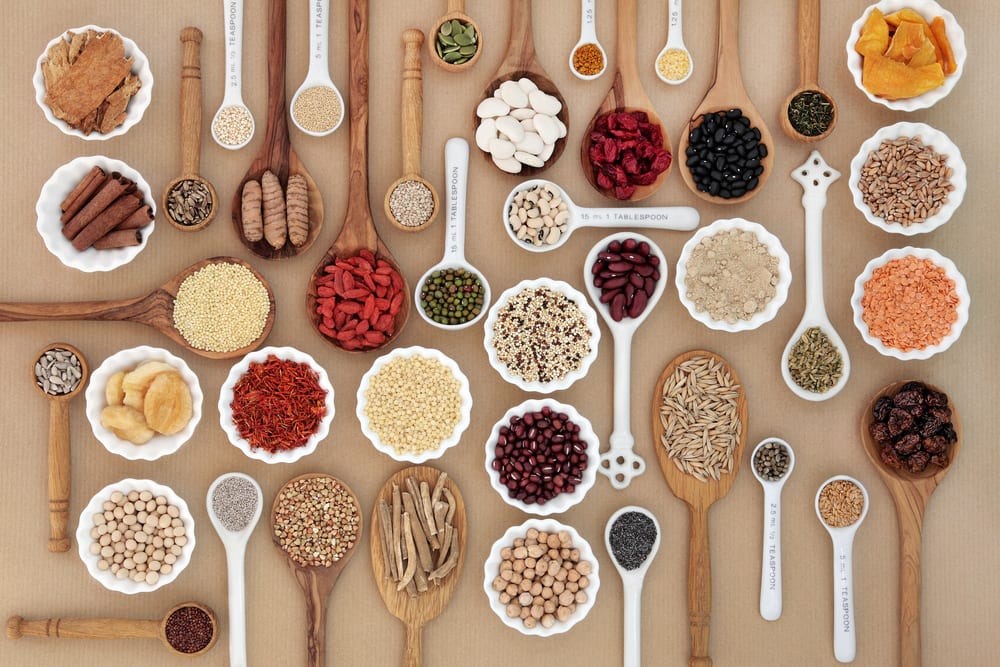
Factors Influencing The Price
Ingredient Source:
The source of an ingredient can also have an impact on the price. These include ingredients that are developed after years of research as well as economic investments so as to procure substances with efficacy, quality, and that has higher absorption than the ones that are available on the market already.
This higher quality, however, comes at a cost that necessary to recover the investments and work that have been required to develop them. Nevertheless, it has the benefit of procuring a technologically advanced and superior product.
For example, glucosamine extracted from shark costs far more as compared to those derived from bovine sources. Calcium carbonates are affordable and widely available; however, some research reveals that expensive calcium citrate is better absorbed.
Origin:
Another aspect that influences the supplement price is the origin(Synthetic or natural) of the ingredients. Producers using synthetic ingredients can save money because their production costs are low, and there is no need to manage the natural sources from which the functional principles are to be extracted. On the flip side, these substances don’t have the same quality as the natural ones. The bioavailability of the raw materials in the product is another factor that affects the supplement price.
Type of Packaging:
Furthermore, the packaging type also affects the supplement price. Some ingredients perish easily due to air, light, different temperature, and needs specific packaging and formats. However, “non-standard” formats tend to be expensive, and manufacturers who plan on cutting down their cost will not be taking this into account, thereby obtaining a supplement that contains ingredients that have been altered, making the product less safe and effective.
The Concentration of Ingredients:
Perhaps the most obvious and also the most underestimated aspect that affects the price of the supplement is the concentration of the raw materials and its daily dosage. There are several cheap products with a low concentration of ingredients and whose effectiveness is quite unlikely.
Manufacturers will have to carefully examine regulatory shifts and also adjust accordingly to avoid supply disruption or consumer backslash caused by product quality concerns. However, taking on these issues is definitely worth it.
The Bottom Line
The information mentioned above will thus help you in understanding the real cost of manufacturing supplements or vitamins.
The supplement market is strong, large, and growing. This opens up a lot of opportunities. Health stores have been witnessing a respectable annual growth of 4.5 percent(4). Also, the online supplement and vitamin sales have been experiencing an annual growth of 12%(5). Together, these sectors account for over $30 billion annually, with more than 100,000 businesses. The rise in the supplement market growth offers an excellent opportunity for manufacturers and retailers to cash in on a robust growth sector.
Partner With SMP Nutra to Manufacture Your Supplements
Here at SMP Nutra, we are capable of manufacturing any type of nutraceutical formula. We are experts in private labeling and offer everything from manufacturing to fulfillment. We boast some of the lowest prices available and produce high-quality supplements that will make your supplement stand out from the rest of the competition.
References:
- https://www.marketresearchfuture.com/reports/health-supplements-market-1646
- https://www.grandviewresearch.com/press-release/global-dietary-supplements-market
- https://www.tandfonline.com/doi/abs/10.1080/02640410701607395
- https://www.ibisworld.com/united-states/market-research-reports/health-stores-industry/


